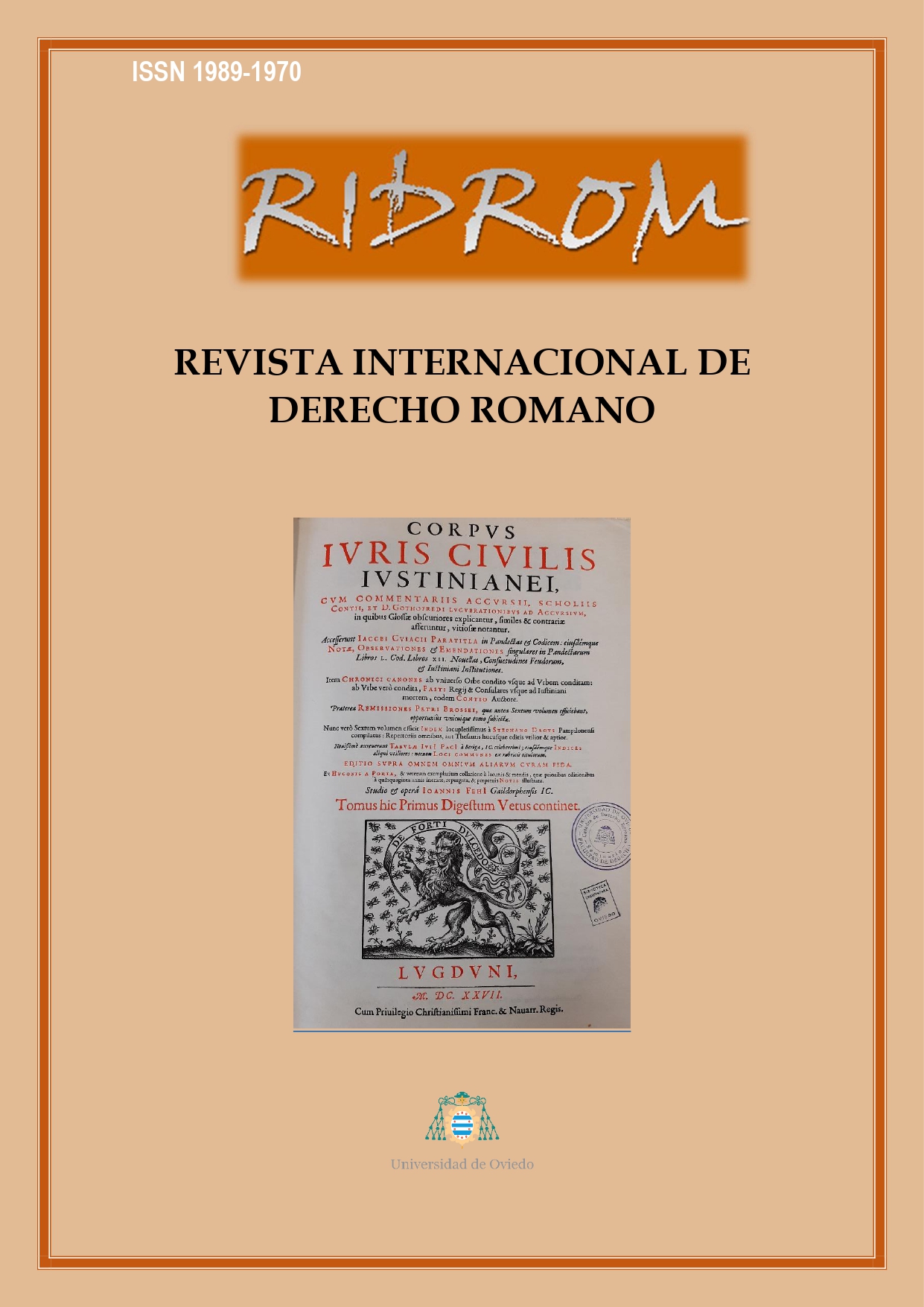Abstract
The senatusconsultum Orphitianum, 178 A. D. was created at the request of Marco Aurelio and recognized the children as legitimate heirs of their mother with the consequent displacement of the agnates. The ius novum took into consideration the cognatio and granted hereditary expectations to the children in the bona materna, whenever the deceased woman and their descendants themselves fulfilled a list of requirements. The text of the senatusconsultum should have been designed principally to the succession of the sui iris woman, who had been married according to iustum matrimonium. All of these roman mothers would arouse a broad social consensus towards the rule. The jurisprudence ended up extending the statements of the senatusconsultum to different situations, for which it was not, in principle, designed. A large number of consultations led the jurists and the emperors themselves to admit the inheritance of women performers of less conventional family circumstances, as the liberta, the captives who returned with their children and died in Rome or the emancipated women. All this occurred centuries before the definitive recognition of the kinship of cognatio in the Novel 118 by Emperor Justinian..Downloads
Download data is not yet available.

